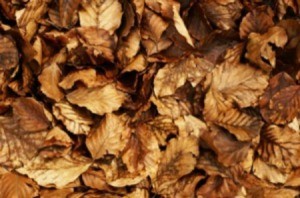 Change grass clippings and vegetable peeling "trash" into gardening "treasure" by staring a compost pile. The ThriftyFun community shares their experience. Post your own tips here.
Change grass clippings and vegetable peeling "trash" into gardening "treasure" by staring a compost pile. The ThriftyFun community shares their experience. Post your own tips here.
By Kathy
A couple of years ago, when I spread compost on my flower beds in front of my house, I had the added bonus of growing "cantaloupe". The seeds did not compost the year before, just laid dormant and warm in the other "stuff" that was composting. The flower bed was not only mulched with the compost, the foliage and flowers was as much an added bonus as the cantaloupe was.
I get my "extra" leaves and grass clippings from my boyfriend. He is a nut about raking and putting everything into bags. He just transports the bags to my house and I compost it and then use it as mulch. Don't forget about adding newspapers in the summertime. The dry "brown" stuff balances out the wet "green" stuff from the grass clippings.
By Norma
By Jess
By Barbara
By Nancy
Here are the questions asked by community members. Read on to see the answers provided by the ThriftyFun community.
How do I make my own mulch using grass clippings, potato peels, leaves, and miscellaneous yard waste? What can I use, and what not to use, how long before it can be used?
Hardiness Zone: 10a
By Dean from El Cajon, CA
You are saying mulch, but I think you probably mean compost. You can start a simple pile in an out of the way corner of your yard, if you have the space, and let it pile up until next year. It will break down to compost eventually, but it does so faster if you turn it with a pitchfork or the like.
I am new at composting, I have only done a little research and just started my first batch.This is the information that I have looked around to find and started using. I've used a couple of trash cans, drilled a couple of holes for air and turn the compost from one to the other regularly. I started with grass clippings, dry leaves, pine needles, and kitchen scraps. I also added garden soil to my compost. The soil helps cover any odors and speeds the process.
Do not compost meat, bones or fish scraps (they will attract animals.) Chicken manure and horse manures are great compost activators, but pet wastes should not be composted. Apple peels, banana peels, peach peels and orange rinds may contain pesticide residue, and should be kept out of the compost. Sawdust may be added to the compost, but should be mixed well and scattered thinly to avoid clumping. The same is true of wood ash.
For the kitchen wastes, I keep a 5 gallon bucket with a lid under my kitchen sink. Chop or blend any peels or chunks to speed the composting process. I haven't heard anyone address the issue, but I choose not to include left-over vegetables that have been cooked with salt.
Leaves and grass clippings are also excellent for compost, but should be sprinkled into the bin with other materials, or put on in thin layers. Otherwise they will clump together and take longer to compost. If you want to speed up the composting process, chop the larger material into smaller pieces. Do not use perennial weeds or weeds/grass gone to seed or you may find them in your garden next year. Adding earthworms does wonders! I try to keep a carbon/nitrogen mix of 3:1(see list below).
Carbon gives compost its light fluffy body. Nitrogen is the enzyme making material.
I moistened lightly, but be careful of over watering. I use an old piece of wood to cover and keep in moisture. Remember that oxygen is just as important as moisture so turn it often. If using some sort of box, use a shovel or pitchfork. I am turning it about once a week. The composting action produces heat until the mixture is done. If it starts steaming you might remove the lid for a time.
A couple of important things to note:
Too little water is better than too much water.
If the pile is too smelly, add carbon.
Carbon Compostables=browns
Garden plants disease free plants only
Leaves chop leaves for faster breakdown
Dryer lint mix well
Wood ash sprinkle lightly
Sawdust clumps, sprinkle lightly
Shrubs prunings are slow to breakdown
Straw (not hay) straw is best, hay has seeds
Pine needles acidic use in moderate amounts
Paper newspaper, cardboard, brown paper
no glossy paper or colored inks
Wood chips high carbon levels, use sparingly
Neutral Compostables:
Eggshells adds calcium
Nitrogen Compostables= greens
Table scraps add with carbon no meats or salt
Coffee grounds use filters too
Tea grounds bags are ok or loose
Fruit and veg scraps add with carbon compostables
Chicken manure acts as an activator
Comfrey leaves acts as an activator
Grass clippings mix well, clumps up
Flowers add with carbon compostables
I have mowed autumn fallen leaves over with a mulching mower. Then just dumped them into beds. Spray them down to stick together so they don't blow away. This has worked for me great in the past. Maybe sprinkle some limestone on them to help decomposed. This holds the weeds back, keeps the moisture in during the summer. They are mostly decomposed by fall the following year making the bed ready for the next batch.